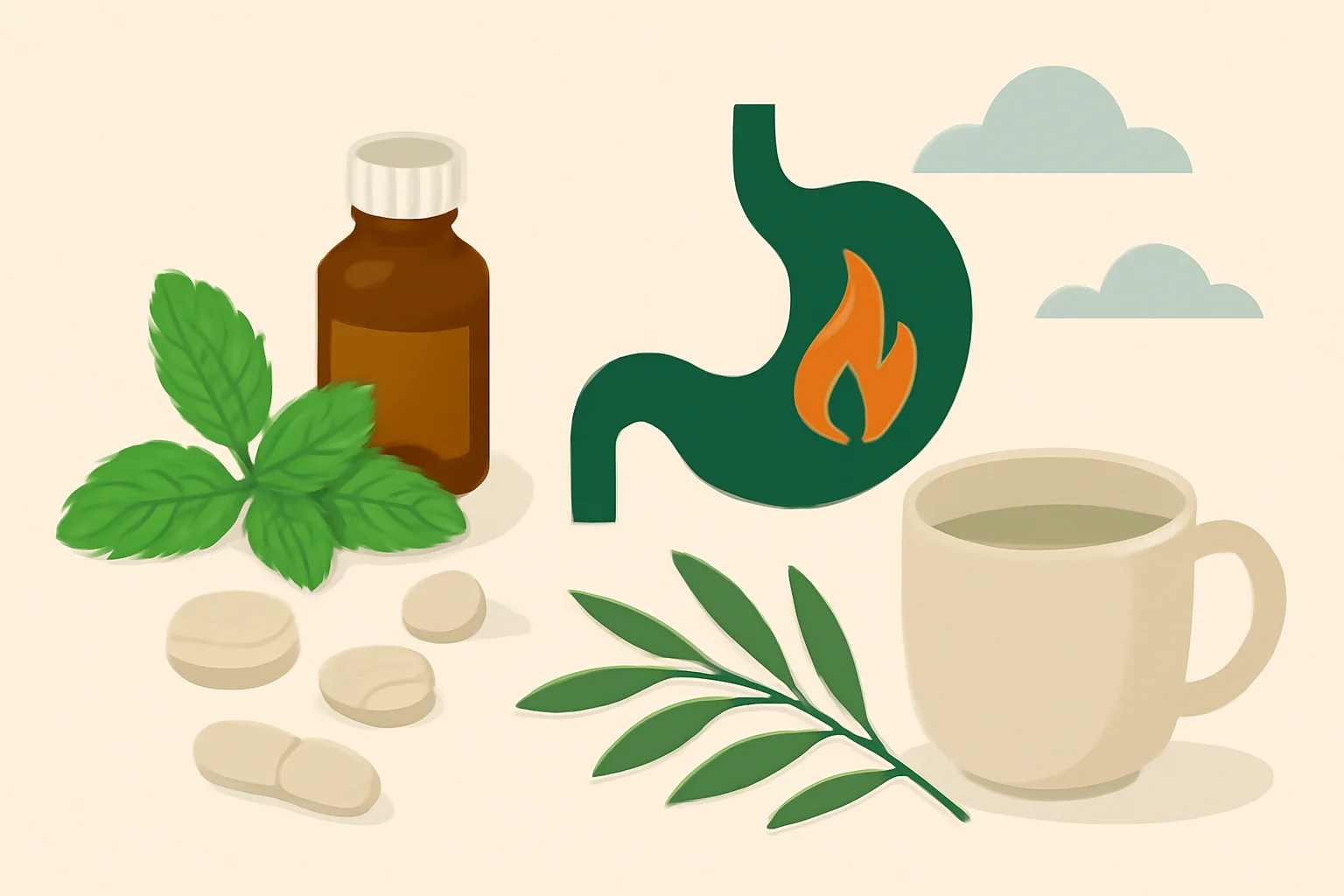
Effective Solutions Against Stomach Acid: Natural and Medicinal Methods
The problems with stomach acid complicate the lives of many people and can have an adverse effect on daily activities. Stomach acid is the acid produced in the stomach that helps break down nutrients during meals; however, if the acid level rises too high, it can cause various complaints. Heartburn, reflux, and stomach pains can all be consequences of excessive stomach acid production.
Modern lifestyles, stress, poor eating habits, and a sedentary lifestyle can all contribute to the emergence of stomach acid problems. People often seek solutions that can help alleviate these unpleasant symptoms. It is important to have the right information, as managing complaints related to stomach acid often requires lifestyle changes. A proper diet, stress management, and the use of natural remedies can all help normalize stomach acid levels.
The aim of this article is to present the problems related to stomach acid and the possible solutions that can help alleviate symptoms and maintain healthy stomach function.
What is stomach acid and how does it work?
Stomach acid, also known as gastric acid secretion, is the acid produced in the stomach, primarily composed of hydrochloric acid. This acid plays a vital role in digestion, as it helps break down food and absorb nutrients. Stomach acid also provides protection against pathogens, as the acidic environment kills bacteria and viruses that may enter the stomach with food.
The production of stomach acid increases during meals. When we consume food, the glands in the stomach wall become activated and start producing acid. During the digestive process, the muscles of the stomach also contract, allowing the mixture of acid and food, known as gastric contents, to be properly prepared for transfer to the intestines.
A healthy level of stomach acid is essential for proper digestion. However, if acid production rises too much, or if the stomach’s protective mechanisms weaken, the acid can irritate the stomach wall, leading to unpleasant symptoms such as heartburn, reflux, or stomach pain.
It is worth noting that certain foods and beverages, such as fatty foods, coffee, alcohol, or chocolate, can increase stomach acid production. Therefore, it is important to consciously choose a diet to avoid the development of stomach acid-related problems.
Causes of stomach acid problems
There are many factors that can lead to stomach acid problems. One of the most common factors is poor nutrition, which includes excessive consumption of fatty, spicy foods, fast food, and sugary drinks. These foods not only increase stomach acid production but can also irritate the stomach lining, causing heartburn and pain.
Stress and anxiety also play a significant role in the development of stomach acid problems. In stressful situations, the body produces stress hormones that affect digestive processes. Due to stress, many people tend to overeat, which further increases stomach acid production.
A sedentary lifestyle can also contribute to stomach acid problems. Physical activity aids digestion and reduces excess stomach acid. If someone does not exercise enough, the functioning of the digestive system may slow down, leading to the accumulation of stomach acid.
Another important factor is smoking. Smoking not only increases stomach acid production but also damages the stomach lining, thus exacerbating complaints related to stomach acid. Alcohol consumption has similar effects, as it irritates the stomach wall and increases acid production.
Finally, certain medications can also cause stomach acid problems. Medications such as non-steroidal anti-inflammatory drugs (NSAIDs) or certain antibiotics can irritate the stomach lining, leading to heartburn and pain.
Natural solutions for reducing stomach acid
There are several natural solutions for treating stomach acid problems that can help alleviate symptoms and improve digestion. The first and perhaps most important step is to establish proper nutrition. To improve the diet, it is advisable to consume more vegetables, fruits, whole grains, and proteins. These foods are not only rich in nutrients but also help normalize stomach acid levels.
Foods rich in probiotics, such as yogurt, kefir, or sauerkraut, also have a beneficial effect on the balance of gut flora, thereby aiding digestion and reducing stomach acid problems. Foods high in fiber, such as vegetables and fruits, also assist in digestion by promoting bowel movements and reducing the accumulation of stomach acid.
It is also worth paying attention to stress management. Relaxation techniques, such as meditation, breathing exercises, or yoga, can help reduce stress, thereby moderating stomach acid production. Regular physical activity is also important, as it helps maintain a healthy weight and improves digestion.
Additionally, certain herbs and natural supplements can help reduce stomach acid. For example, ginger, chamomile, mint, and aloe vera all have beneficial effects on stomach health. These can be consumed in the form of teas, capsules, or fresh.
What to pay attention to in cases of stomach acid problems
When treating stomach acid problems, it is important to monitor symptoms and seek medical help if necessary. Heartburn, reflux, or stomach pain can lead to more serious health issues in the long term, so they should not be ignored.
It is advisable to keep in mind that avoiding certain foods and drinks can help alleviate symptoms. Reducing the consumption of fatty, spicy foods, caffeine, and alcohol, as well as establishing a regular eating rhythm, can all contribute to normalizing stomach acid levels.
If natural solutions do not yield the desired results, it is worth consulting a doctor. Medications prescribed by a doctor, such as proton pump inhibitors or antacids, can help reduce stomach acid levels and alleviate symptoms.
When managing stomach acid problems, it is important to establish a proper lifestyle that includes a healthy diet, stress management, regular exercise, and medical monitoring. These steps can help maintain stomach health and prevent unpleasant symptoms.
**Warning:** This article does not constitute medical advice, and it is recommended that anyone with health issues consult a doctor.

